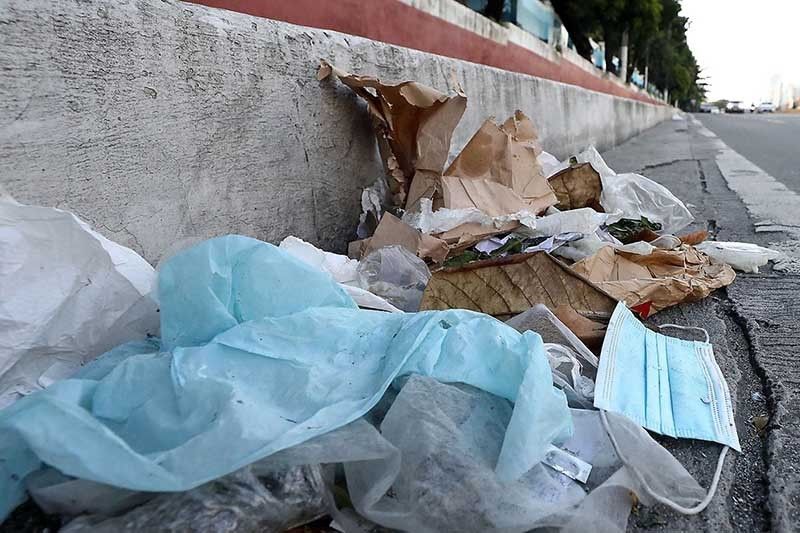LGUs, health facilities told to dispose infectious medical waste properly

MANILA, Philippines — The Department of Health asked healthcare facilities and local government units to follow protocols in disposing infectious medical waste after face masks and gloves were seen strewn along EDSA.
“If that waste is picked up by garbage collectors and they’re not wearing gloves, they can get infected if they touch their face,” Health Undersecretary Maria Rosario Vergeire said in a briefing on Monday.
“We remind all healthcare providers and all LGUs, we are asking for your help in monitoring the disposal of medical waste. There is this protocol that needs to be followed,” she said in Filipino.
Surgical masks, gloves and other personal protective equipment were found scattered along the northbound lane of EDSA in Quezon City Monday morning. MMDA EDSA traffic chief Bong Nebrija said traffic authorities are checking video footages in the area to determine the source of trash bags containing medical waste.
Vergeire called on medical facilities and LGUs to follow protocols on the proper handling of infectious medical waste as it could have serious impacts on human health and the environment, if not managed properly.
Health department guidelines for waste management during the health crisis instruct that all medical waste generated in the management and treatment of suspect, probable and confirmed COVID-19 patients should be considered infectious. These include, among others, used protective gear, gloves, swabs, test tubes and syringes.
Infectious waste is discarded in an appropriate waste receptacle. Waste bins must be properly sealed prior to their transport to a temporary facility, provided these locations are away from patients and public spaces, before getting picked up for treatment. Some facilities disinfect their waste at source.
As typically practiced, medical waste in the country are disinfected through steam sterilization, also called autoclave, which subjects the waste to intense heat and pressure to kill pathogens. Once treated, medical watse is then transported to a licensed sanitary landfill for final disposal in a cell dedicated for this type of garbage.
Even prior to the EDSA incident, local medical facilities are seeing a surge in volume of infectious waste as rising coronavirus cases in the country also increased the number of disposable face masks, syringes and other protective gears which are thrown away after usage.
Data earlier obtained by Philstar.com from the environment department showed the Philippines generated 19.187.7 metric tons of infectious healthcare garbage from April to July 20.
- Latest
- Trending































